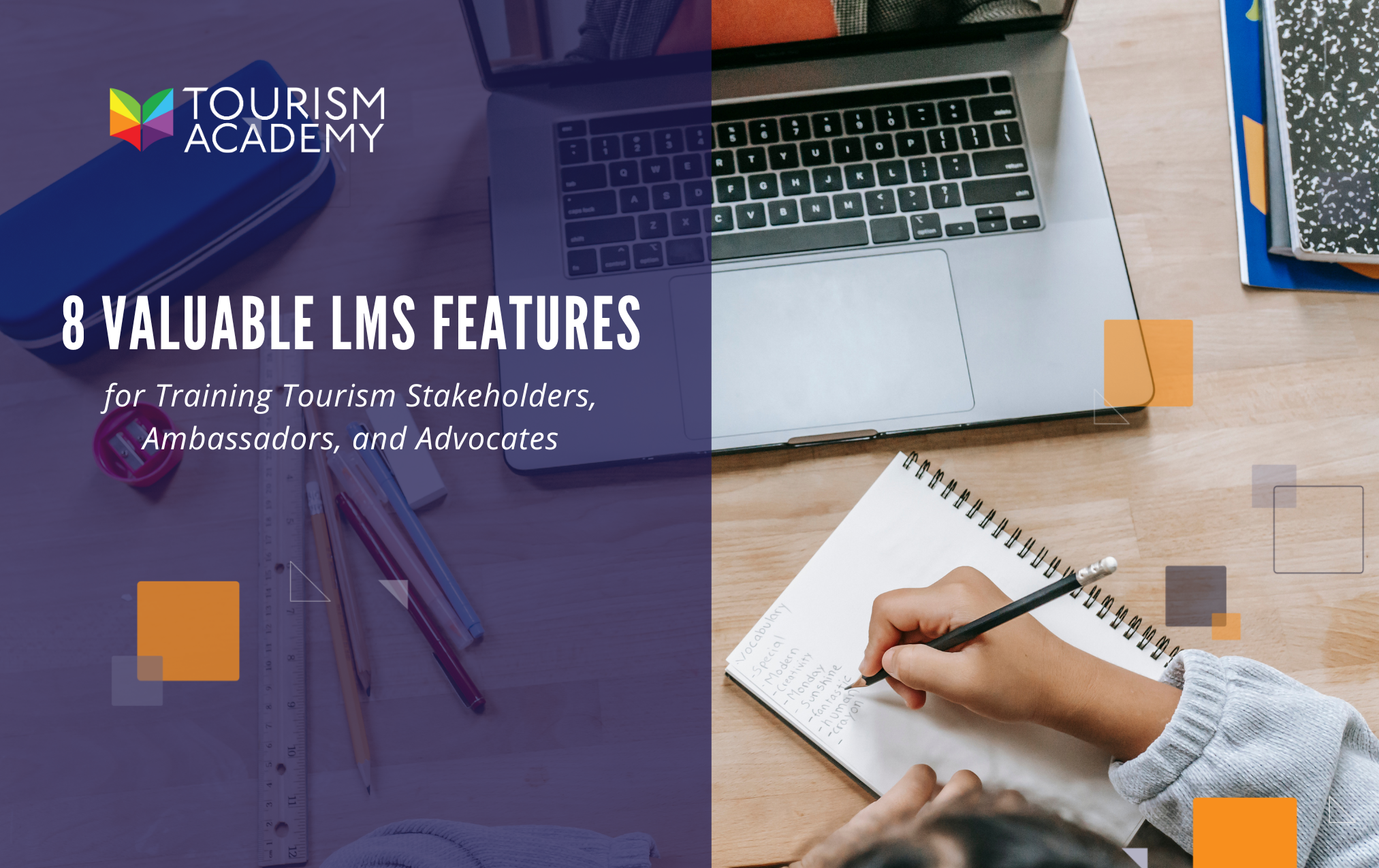
8 Valuable LMS Features for Training Tourism Stakeholders, Ambassadors, and Advocates
In the dynamic world of tourism, the success of any destination relies heavily on the knowledge and expertise of its stakeholders, ambassadors, and advocates. These individuals play a crucial role in promoting and showcasing a particular destination, its unique attractions, and its experiences. Utilizing a robust Learning Management System (LMS) like that provided by The Tourism Academy | tourismacademy.org is essential to equip them with the necessary skills and information. An LMS can provide a comprehensive platform for training, engaging, and empowering tourism stakeholders. Here are eight valuable LMS features that are particularly beneficial for training tourism stakeholders, ambassadors, and advocates:
-
User-friendly Interface: A user-friendly interface is crucial for effective learning. Ensure the LMS has an intuitive and easy-to-navigate design, allowing stakeholders to quickly access training materials, modules, and resources.
-
Multimedia Integration: Incorporating multimedia elements such as videos, images, and interactive content enhances the learning experience. A feature-rich LMS should support multimedia integration, enabling stakeholders to engage with visually appealing and immersive training materials.
-
Mobile Compatibility: With the rise of mobile devices, it's essential to choose a mobile-compatible LMS. This feature allows stakeholders to access training modules and resources on the go, maximizing convenience and flexibility.
-
Gamification: Gamification elements, such as badges, leaderboards, and quizzes, can significantly enhance stakeholder engagement and motivation. An LMS with built-in gamification features can transform training into an interactive and enjoyable experience, encouraging active participation.
-
Social Learning: Social learning plays a vital role in tourism, as stakeholders often learn from each other's experiences and insights. An LMS incorporating social learning features like discussion forums, chat functionalities, and peer-to-peer interactions fosters stakeholder collaboration and knowledge sharing.
-
Performance Tracking and Analytics: A robust LMS should offer performance tracking and analytics capabilities. This feature allows administrators to monitor stakeholders' progress, assess their proficiency levels, and identify areas that require further training or improvement.
-
Certification and Badging: Providing stakeholders with certificates and badges upon completing training modules or achieving specific milestones boosts their confidence and establishes credibility. Look for an LMS that offers customizable certification options and digital badging features.
-
Multilingual Support: The tourism industry attracts visitors and stakeholders from diverse backgrounds. An LMS that supports multiple languages ensures inclusivity and enables stakeholders to access training materials in their preferred language, eliminating language barriers.
By incorporating these eight valuable features into your LMS, you can create a robust and effective training platform for tourism stakeholders, ambassadors, and advocates. This investment in their development will enhance their knowledge and skills and empower them to become influential representatives for your destination. Remember, a well-trained and knowledgeable team is a powerful asset in promoting and advocating for tourism experiences, ultimately contributing to the success and growth of your destination.

Leave a comment